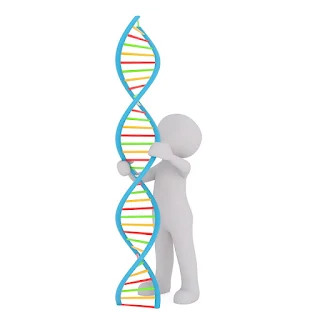Nutrigenomics: How Your DNA Shapes Your Diet & Health
Feeling confused by one-size-fits-all diet advice? That’s because your genes influence how you absorb nutrients, respond to food, and even manage your weight.
Nutrigenomics is the science that studies how your genetic code interacts with what you eat—so you can make smarter, more personalized health choices.
In this post, you’ll learn:
- What nutrigenomics is (in simple terms)
- How it can improve gut health, weight loss, and chronic disease risk
- Real-life examples of gene-based diets
- Pros and cons of genetic testing
- How to get started safely
🔬 What Is Nutrigenomics?
Nutrigenomics is the study of how nutrition affects your genes—and how your genes affect the way your body uses food.
It helps explain why:
- Some people thrive on a low-carb diet, while others crash
- Coffee helps some stay alert—but causes anxiety in others
- One person gains weight on dairy, another stays lean
- This field is part of personalized nutrition, a growing trend in modern wellness.
Did you know? You have genes that affect how your body handles fats, sugar, caffeine, and even vitamins like B12 and D!
🧠 How Nutrigenomics Supports Gut & Mental Health
Your DNA can influence how nutrients are absorbed and processed, which directly impacts your digestion and brain health.
Here are a few examples:
- MTHFR mutation → Poor folate absorption, may lead to anxiety or mood imbalance
- Lactose intolerance gene → Gut inflammation or bloating from dairy
- FTO gene → Higher risk of obesity and insulin resistance
- COMT gene → Slow caffeine metabolism, which may cause anxiety or insomnia
Even with a healthy diet, your genes might be holding you back.
That’s why personalized nutrition can make a big difference.
👉 Also read: How Diet Impacts Mental Health – 5 Research-Backed Tips
🥗 What a Gene-Based Diet Might Look Like
Once you know your genes (through a simple DNA test), you can:
- Increase fiber if you have slow digestion genes
- Avoid high-fat foods if you have FTO obesity-related variants
- Reduce caffeine if you have the COMT slow gene
- Eat more leafy greens if your folate genes are weak
- Even without a test, you can observe how your body reacts to food and make changes.
👉 Helpful post: Fibremaxxing – A High-Fiber Diet Guide
✅ Is Nutrigenomics Right for You?
Pros:
- Personalized health strategy
- Reduces trial-and-error with diets
- Can help resolve fatigue, bloating, and more
Cons:
- Can be expensive
- Needs expert interpretation
- Genetics is just one part—lifestyle still matters
If you feel stuck in your health journey, a nutrigenomics-based approach might offer clarity.
🔗 Related Posts on This Blog
Gut Health & The Microbiome – 5 Diet Tips That Transform You
Metabolic Syndrome: The Silent Threat
Electrolyte Hydration Guide
Top 5 Proven Nutrition Tips for Energy & Mental Clarity
🌐 External Expert Source
✔️ Harvard School of Public Health – Precision Nutrition
(Trusted information about gene-based diets and personalized nutrition)
📝 Final Thoughts
We’re entering an era where your genes can help shape your plate.
While more research is ongoing, nutrigenomics offers a powerful step toward personalized, DNA-driven health.
💬 What’s your view? Do you feel certain foods don’t work for your body? Share your thoughts in the comments!







Comments
Post a Comment